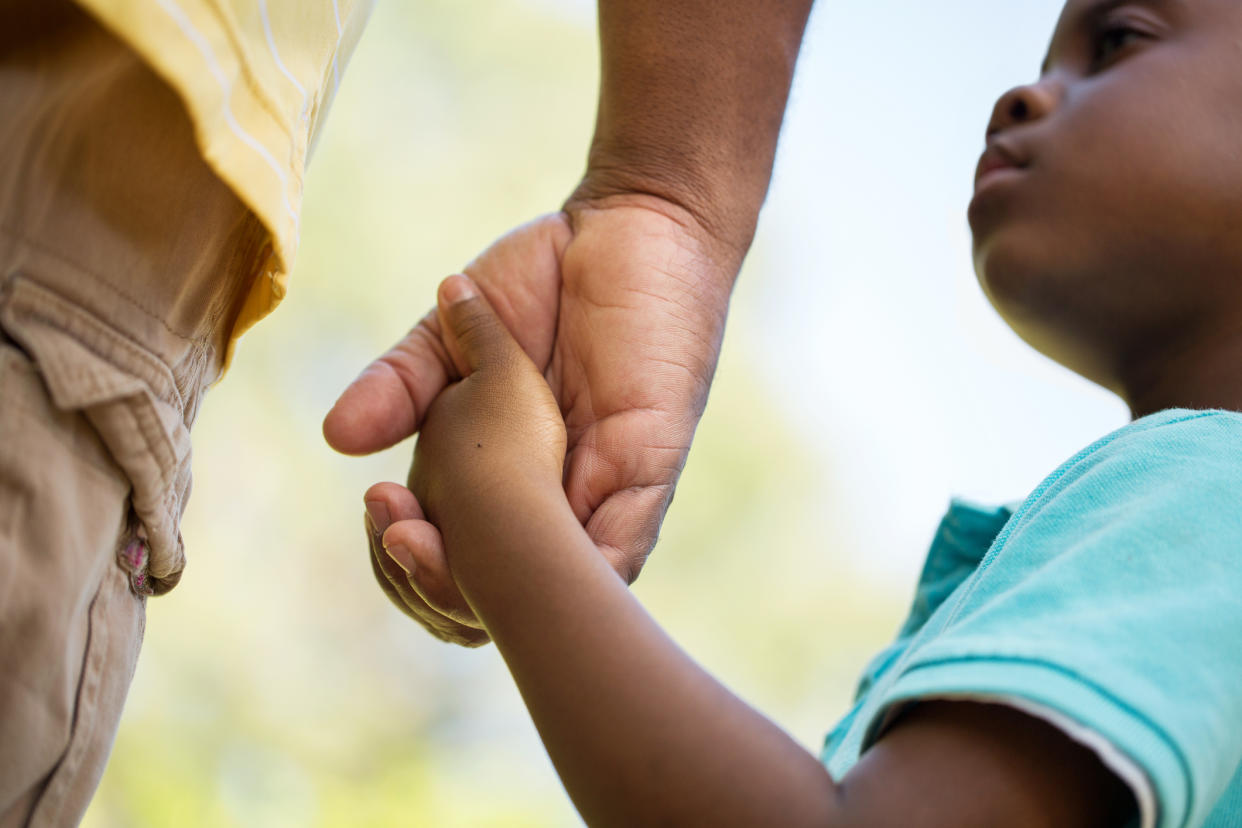Texas suspends black elementary school students five times more often than white students

An illuminating report released Monday by the nonprofit organization Texans Care for Children took a close look at the discipline of the state’s students from prekindergarten through second grade — and found that a lot of it depends on what you look like.
The study, titled “Keeping Kids in Class,” counted 64,773 in-school and 36,475 out-of-school suspensions across the state between 2015 and 2016, and found major racial disparities. Notably, black students were five times more likely than their white counterparts to receive an out-of-school suspension, and twice as likely to receive an in-school suspension. And despite making up just 13 percent of the pre-K-to-second-grade population in Texas, black students were 42 percent of those receiving out-of-school suspensions.
Stephanie Rubin, the CEO of Texans Care for Children, says this is more than unacceptable — it’s potentially damaging. “Suspending our youngest students interrupts their education, communicates to them that they don’t belong, and misses a critical opportunity to actually address why they might be acting out,” Rubin said in a statement. “A suspension does nothing to resolve the root of the problem, whether it’s a child’s developmental delay, the trauma of an abusive home, challenging but age-appropriate behavior, a teacher’s need for stronger classroom management strategies, large pre-k class sizes, or an educator’s implicit biases about certain demographic groups.”
Unfortunately, the problem isn’t new. Racial disparities in Texas’s school disciplinary programs have long been a point of contention in the state, leading to a law in 2017 that bans out-of-school suspensions for kids in the second grade and below. That law, HB 674, was aimed at breaking what experts call the “school-to-prison pipeline” (STPP).
STPP is a phenomenon which shows that harsh school discipline disproportionately sends children of color into the juvenile justice system. The American Civil Liberties Union defines it as a “disturbing national trend” in which children are “funneled out of public schools and into the juvenile and criminal justice systems.” Suspensions fall under what the ACLU calls “zero tolerance policies,” which harshly punish behavior that could be handled in other ways.
The hope was that Texas’s ban of out-of-school suspensions for young kids would put a stop to this. Like similar laws in New Jersey and Illinois, the bill suggests teachers use alternative forms of discipline, such as rewarding positive behavior. Rubin and her team suggest the same, offering potential alternatives for teachers to try, including Positive Behavioral Interventions and Supports (PBIS) and Social Emotional Learning (SEL).
These ideas build on previous research from Dr. Walter S. Gilliam, an Associate Professor of Child Psychiatry and Psychology at the Yale University Child Study Center. Gilliam has thoroughly analyzed the role of implicit bias in school punishment, and discovered that school administrators’ unconscious (and conscious) attitudes about race play a major role in who gets punished.
In one controlled study, for example, Gilliam had young black and white children behave inappropriately in a classroom. Both white and black educators were more likely to focus on disciplining the black boys. Previous research has suggested potential contributing factors to this disparity, including lower socio-economic status and lack of family support, but Gilliam sees the problem as bigger than individual families.
“Racial disparities in preschool expulsions and suspensions are civil rights matters involving our nation’s youngest learners and should no longer be tolerated,” Gilliam wrote in a 2016 op-ed for the Robert J. Wood Foundation. “More than sixty years after Brown v. Board of Education, we are still struggling to ensure that our children of color are afforded equal access to educational opportunities.”
Figuring out how we can ensure that educational opportunities are equal is something David Ramey, an assistant professor of sociology and criminology at Penn State University, has been working on for years. He says the Texas study shows evidence of something he has observed as well.
“We have preconceived notion of kids who are more likely to misbehave in any situation — because of gender and racial stereotypes — and it’s young black males. So when you see young black males breaking the rules, you’re more likely to attribute it to some underlying badness — a pattern of bad behavior,” Ramey tells Yahoo Lifestyle, “whereas in white kids it might just be seen as an exception.”
Ramey performed an even larger study of school discipline in 2016, and found evidence that the exact same behaviors in black and white kids can be interpreted differently. With black kids, bad behavior at school tends to be “criminalized” (e.g. punished with suspensions) whereas with white kids, bad behavior tends to be “medicalized” (e.g. diagnosed as Attention Deficit Hyperactivity Disorder).
His point is this: while a black child who is acting out may be considered unwilling to learn, a white child doing the same thing may be considered in need of help. “White kids are still getting punished, but there’s a higher threshold of behavior that they can get away with, and when they do get punished, they get diagnosed and treated,” he tells Yahoo Lifestyle. “Black kids have a lower threshold for getting punished and a much higher threshold for getting treatment of any type.”
Ramey says the Texas study is not only an important look at the disparity that exists in school discipline nationwide but also a reminder that other forms of discipline can be hugely beneficial. “I think it’s really important to implement alternative disciplinary approaches, especially as schools inch more towards zero tolerance in the wake of school shootings,” Ramey says. “Second grade is really early to start giving up on kids. They’re have got to be other ways to focus on the kids who are most at risk.”
Read more from Yahoo Lifestyle:
Mom makes entitled teen shop at Goodwill: ‘Money isn’t everything’
People in Indianapolis are overdosing on drugs laced with bug spray
Follow us on Instagram, Facebook, and Twitter for nonstop inspiration delivered fresh to your feed, every day.
